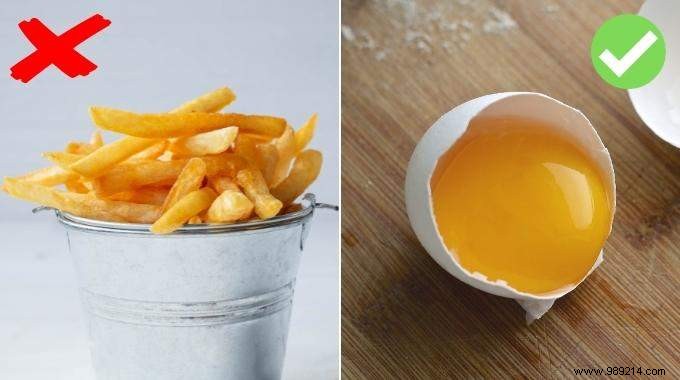
Cholesterol is arguably one of the most misunderstood substances. ..
For decades, people have avoided healthy foods that are high in cholesterol, such as eggs.
We were afraid they would increase the risk of heart disease.
In fact, research shows that eating healthy foods high in cholesterol doesn't have to be bad for your health!
All are therefore not to be discarded; only those loaded with bad cholesterol and saturated fat.
But how do you know what is good and not so good will you tell me?
Well I reveal the list in this article.
Discover the 11 foods with high cholesterol, 7 of which you can eat and 4 to avoid:
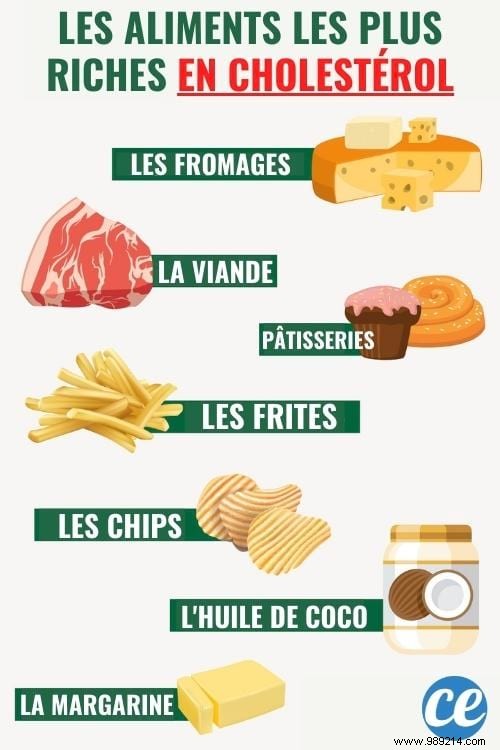

Eggs are one of the most nutritious foods you can eat.
But they are, indeed, very high in cholesterol.
To tell you the truth, a large egg (50 grams) contains 355 mg of cholesterol.
As for the raw egg yolk, it contains 1,140 mg!
People therefore avoid this food for fear of aggravating their levels in the blood.
Except that studies show the opposite!
Finally, more specifically, they show that eating eggs actually increases the level of good cholesterol.
And the good cholesterol (HDL) is the one that protects the heart.
Other research has also shown that consuming 1-3 eggs/day is perfectly safe for healthy people.
And then, in addition to being rich in protein, eggs are an excellent source of nutrients.
I am thinking in particular of selenium, vitamin A and several B vitamins.

Port salut, soft cheese, emmental, brie...
A single slice (22 gr) of these cheeses provided within 120 mg of cholesterol.
Cheese is therefore often associated with a food that increases cholesterol levels.
However, be aware that fatty cheese does not increase this famous rate.
A 12-week study in 162 people has indeed confirmed this.
These people consumed 80 gr of whole cheese per day (which is a high consumption).
While others consumed 80 gr of low-fat cheese every day as well.
Well the group that ate whole cheese didn't have more bad cholesterol (LDL)!
You see, you can eat this food without any problem.
In addition, most cheeses contain good amounts of calcium, protein, vitamin A and vitamin B.
Just respect the recommended portions (30 to 55 gr), because the cheese is very caloric.

Seafood is an excellent source of protein, B vitamins, iron and selenium.
Crustaceans also contain bioactive components, such as carotenoid antioxidants and the amino acid taurine.
This means they help prevent heart disease and lower LDL (bad cholesterol).
So yes, shellfish are high in cholesterol, but it's not bad for your health!
Research indicates that people who eat more seafood have lower rates of heart disease.
And that's not all.
These people are also less prone to diseases such as diabetes or inflammatory diseases such as arthritis.

So here I am going to shake up a lot of beliefs... watch your eyes.
When talking about cholesterol, one of the first foods people say to avoid is red meat.
Yet several large population studies claim the opposite.
They found no link between red meat consumption and heart disease risk!
Also be aware that pasture-raised beef is much lower in cholesterol than industrial beef.
In particular, it contains a lot more omega-3 fatty acids, which have anti-inflammatory properties.
A portion of 120 gr of beef steak (raised in the open air) contains around 80 mg of cholesterol.
This same piece is rich in protein, important vitamins and minerals.
I am talking for example of vitamin B12, zinc, selenium and iron.
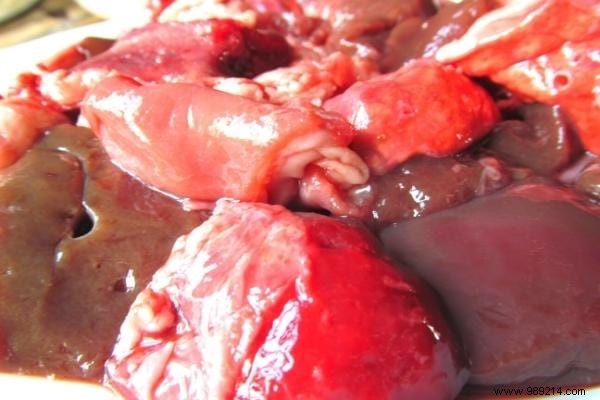
Organ meats (like heart, kidney and liver) are high in cholesterol and very nutritious.
For example, chicken heart is an excellent source of CoQ10 (a powerful antioxidant).
This offal is also very rich in vitamin B12, iron and zinc.
So yes, organ meats are high in cholesterol. But it's good cholesterol!
Evidence of this is a study of over 9,000 Korean adults.
People with moderate organ meat consumption had a lower risk of heart disease...
...Only people with lower consumption!
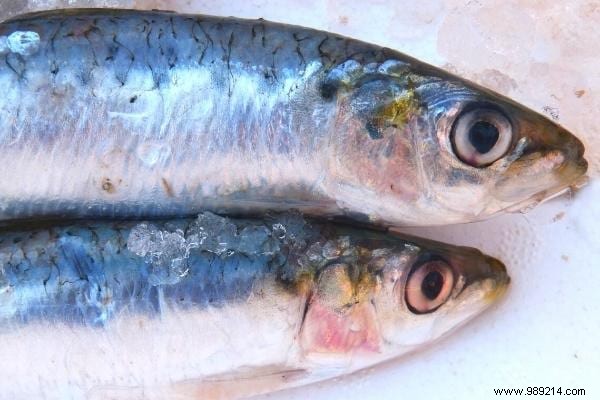
Besides being loaded with nutrients, sardines are a very important source of protein.
Above all, it represents 63% of the daily requirements for vitamin D, 137% for vitamin B12 and 35% for calcium.
They are also an excellent source of iron, selenium, phosphorus, zinc, magnesium and vitamin E.
Prepared in sauce or on the barbecue, sardines are even more delicious.
A portion of 100 g of this small fish certainly contains around 70 mg of cholesterol.
But you will have understood it; sardines are a real "healthy" fish.
Despite its reputation as a fatty fish, sardines even fight cholesterol.
How is this possible?
Quite simply because omega 3 fatty acids reduce the amount of fat in the blood.

Whole milk yogurt is a food rich in cholesterol, but also in nutrients.
Proteins, calcium, phosphorus, B vitamins, magnesium, zinc, potassium...
It has all these very good nutritional qualities for health.
A 245g bowl of whole yogurt contains 35mg of cholesterol.
But the studies are formal.
The consumption of whole fermented milk products influences the reduction of LDL cholesterol (bad cholesterol).
And that's not all.
These yogurts lower blood pressure, the risk of stroke, heart disease and diabetes.
Finally, yogurts are beneficial for transit, as they promote good intestinal bacteria.
While some cholesterol-rich foods are highly nutritious and beneficial to health, others can be dangerous.
Here are 4 foods high in cholesterol that are best to limit or avoid:

All fried foods should be avoided as much as possible.
They partly absorb the cooking oil and then become particularly fatty, caloric and full of cholesterol.
They also contain trans saturated fatty acids which increase the risk of heart disease.
More broadly, they harm our health in many other ways ( obesity, diabetes...).
This is confirmed by the various studies (here and there) on this type of food.

Foods from fast foods are a major risk factor for many chronic diseases.
We mainly talk about heart disease, diabetes and obesity.
People who eat fast foods frequently tend to have higher cholesterol levels.
They have more belly fat, higher levels of inflammation and poor blood sugar regulation.
Eating fewer processed foods and cooking more meals at home leads to less weight gain.
And less body fat is a reduction in risk factors for heart disease.
Less fast food is simply having less LDL (bad cholesterol).

Processed meats, such as sausages, bacon, and deli meats, are foods high in cholesterol.
These foods should be limited in your diet.
Their high consumption is directly linked to an increase in the rates of heart disease and certain cancers.
We think in particular of colon cancer, as this study confirms.
Another study, involving more than 614,000 participants, is also clear about the harmfulness of this kind of food.
These people consumed 50 gr of processed meat per day.
This resulted in a 42% increased risk of heart disease!

Cookies, cakes, ice cream, pastries and other sweets are very high in cholesterol.
They are also particularly loaded with added sugars, unhealthy fats and calories.
The frequent consumption of these foods can therefore have negative effects on health.
In particular, they can lead to significant weight gain in the long term.
Research has also established a link between the consumption of added sugars and obesity, diabetes, heart disease.
In addition, these foods are often devoid of the nutrients our bodies need to thrive.
They have little or no vitamins, minerals, proteins and healthy fats.
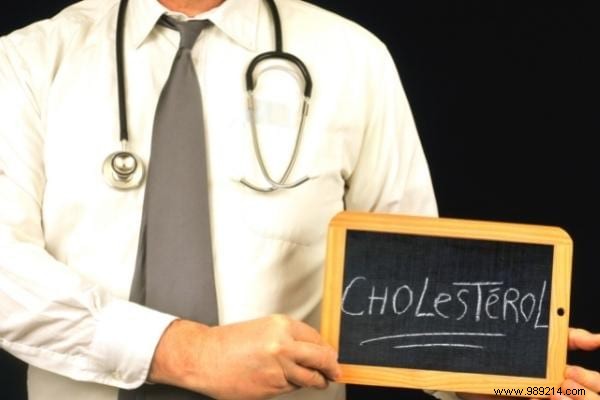
Cholesterol is a substance found naturally in our bodies.
It is the liver that produces all the cholesterol our body needs to function.
But you have seen that it is also present in other products such as meat, eggs, dairy products...
In fact, about 25% of the cholesterol in our bodies comes from food sources.
The rest is produced by the liver.
It is especially important to know that this substance plays an important role for the body.
It produces hormones, vitamin D and the bile necessary for the digestion of fats.
It also enters into the composition of cell membranes to give them strength and flexibility.
Cholesterol is transported by particles called lipoproteins.
These lipoproteins are of 2 categories:low density (LDL) and high density (HDL).
LDL is called "bad cholesterol" , because they are associated with the accumulation of fat in the arteries.
HDL "good cholesterol" help eliminate excess cholesterol from the body.
When you have excess cholesterol, your body compensates by reducing the amount it makes naturally.
In contrast, when dietary cholesterol intake is low, the body increases cholesterol production.
Our body ensures that there is always a sufficient amount of this vital substance.
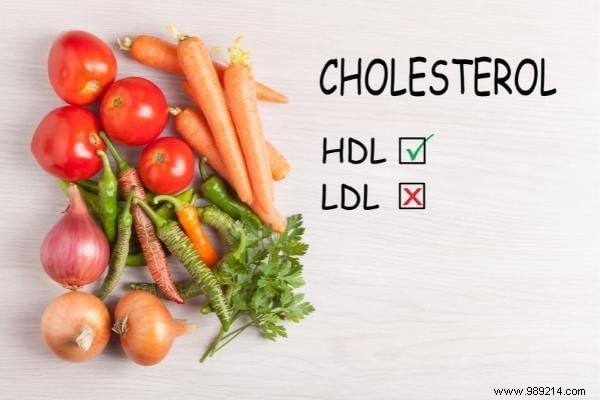
You have understood this throughout this article.
Dietary cholesterol is not necessarily the pet peeve we think it is.
Research shows that it does not significantly affect overall cholesterol levels in the body.
The data from population studies are definitive.
There is no direct link between dietary cholesterol and heart disease.
Dietary cholesterol can have a slight impact on cholesterol levels, yes.
But that's not a problem for most people.
In fact, 2/3 of the world's population experience little or no increase in their cholesterol levels...
...After eating foods high in cholesterol, even in large quantities.
This study confirms this.
In reality, only a small number of people are vulnerable to high cholesterol foods.
They are considered "non-cholesterol compensators" or "hyper-responders".
So research shows that avoiding dietary cholesterol is not necessary for most people!
Nevertheless, let's keep in mind that not all foods containing cholesterol are healthy.
We must exclude from our daily consumption the list of foods that I have shown you in this article.
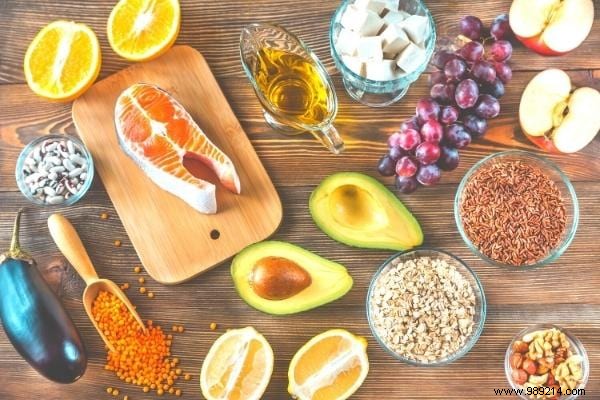
A high level of LDL (bad cholesterol) can cause cholesterol to build up in the blood vessels.
It has been shown to increase the risk of heart disease.
Certain lifestyle and diet changes can lower LDL levels.
To help you in this process, take a look at this tip. She tells you how to do it and what to eat.
More broadly, here are healthy, evidence-based ways to lower your cholesterol:
Eat more fiber.
Research shows that eating more fiber helps lower LDL (bad cholesterol) levels.
I am thinking particularly of the soluble fibers found in fruits, beans and oats.
Increase your physical activity.
Becoming more physically active is a great way to lower your cholesterol levels.
Aerobic exercises are particularly good and effective in reducing LDL.
Lose weight.
Losing body weight is one of the best ways to lower cholesterol levels.
This lowers LDL while increasing HDL, which is optimal for your health.
Quit smoking
Quitting smoking can significantly lower LDL levels.
Smoking raises LDL cholesterol levels and significantly increases the risk of cancer and heart disease.
Eat more fruits and vegetables.
People who eat more fruits and vegetables have lower LDL cholesterol levels.
They are less likely to develop heart disease than those who don't.
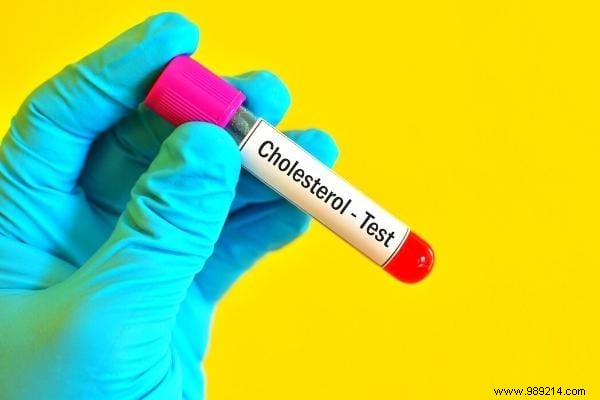
We know that there is good and bad cholesterol.
We also know the list of foods that contain the most bad cholesterol.
All that remains is to know how to know your cholesterol level.
To do this, it's quite simple; laboratory blood tests are required.
These analyzes give the rate of good and bad cholesterol.
Cholesterol does not represent a risk to our health if it remains within the following standards:
- It must in total be less than 2 g/l.
- The HDL level must be above 0.4 g/l.
- The LDL level below 1.6 g/l.
I insist, once again, on the LDL level which must specifically be monitored.
It is he who is the cause of the main coronary diseases, which are widespread in Western countries.
If this bad cholesterol is really high, then it is imperative to change your diet.